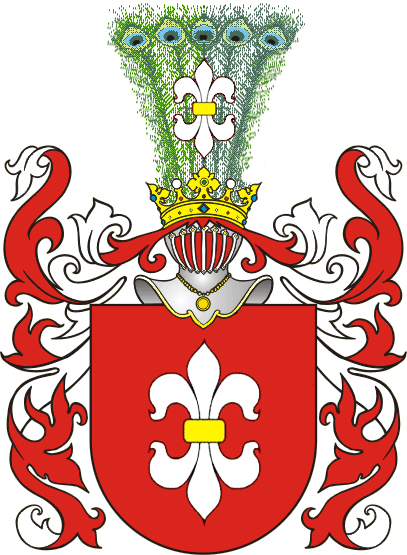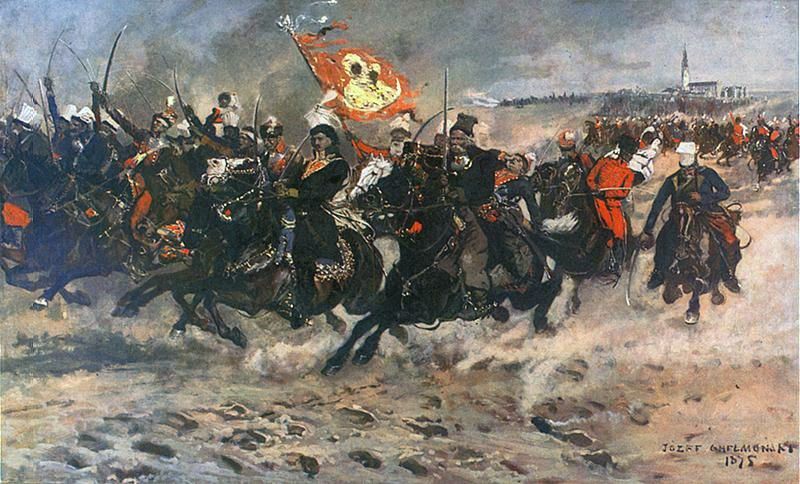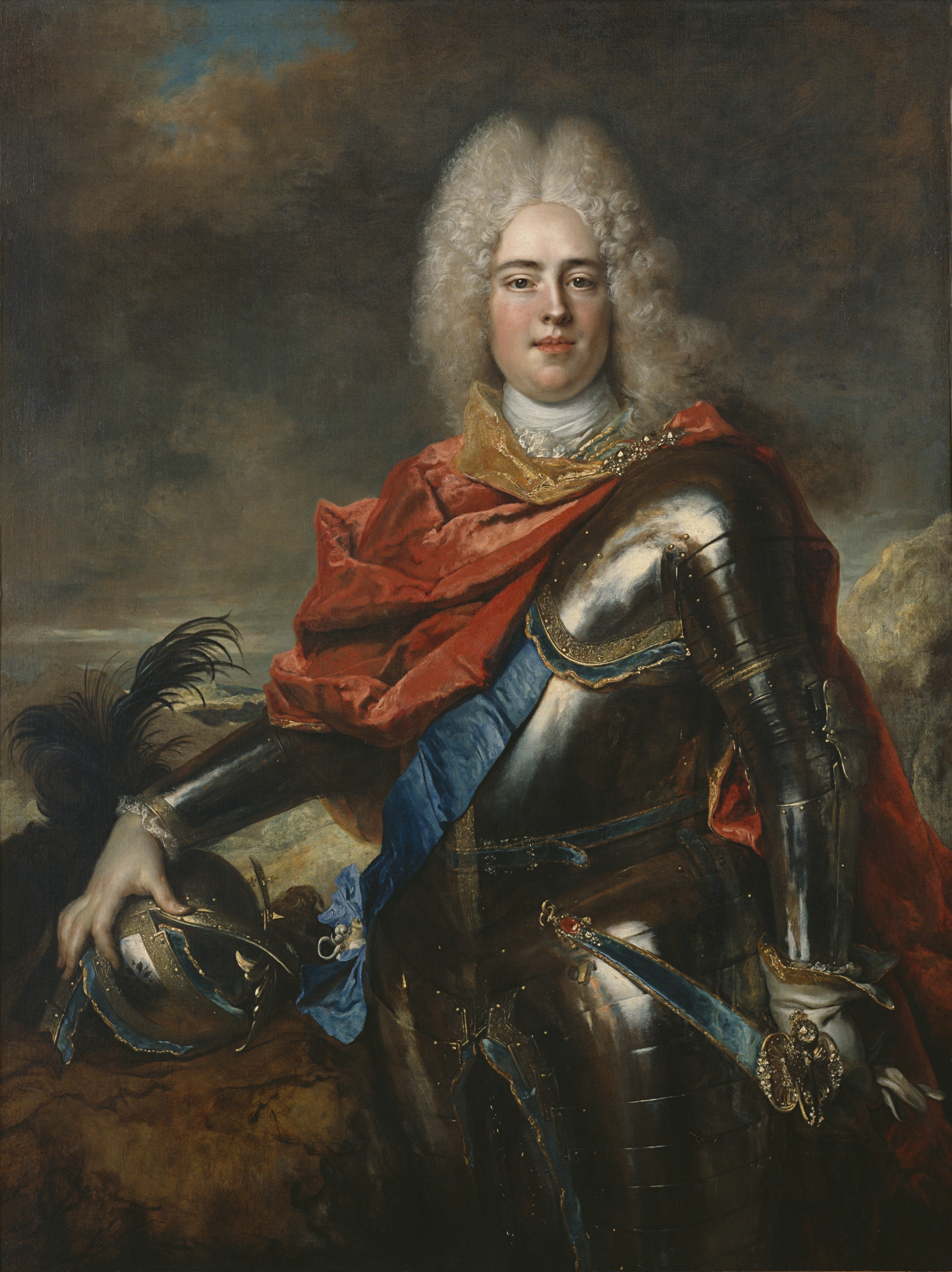|
Michał Jan Pac
Michał Jan Pac (1730–1787) was a Polish-Lithuanian nobleman, Lithuanian Marshal of the Bar Confederation from 1769 until 1772, Chamberlain of King Augustus. He lived in exile in France after the defeat of the Confederation. In 1780, he bought the castle and the village of Marainville in Lorraine;See pag"Adam Weydlich"on the NIFC site. his steward, Adam Weydlich, made acquaintance with the village ''syndic'', François, who had a son, Nicolas, born in 1771. After Pac's death, the Weydlichs left France for Poland, and young Nicolas emigrated with them; in 1810, he was to have a son, Frédéric Chopin Frédéric François Chopin (born Fryderyk Franciszek Chopin; 1 March 181017 October 1849) was a Polish composer and virtuoso pianist of the Romantic period, who wrote primarily for solo piano. He has maintained worldwide renown as a leadin .... Bibliography * "Polski Słownik Biograficzny" (tom 24, str. 729) References 1730 births 1787 deaths Michal Jan Poli ... [...More Info...] [...Related Items...] OR: [Wikipedia] [Google] [Baidu] |
Pac Family
The House of Pac or Pacowie ( pl, Pacowie, lt, Pacai, be, Па́цы) was one of the most influential noble families in the Grand Duchy of Lithuania during the era of the Polish–Lithuanian Commonwealth. Numerous high-ranking officials of the Commonwealth came from their ranks. Their coat of arms was Gozdawa. The family reached the height of its influence during the second half of the 17th century. Their lands were located mainly in Hrodna ( pl, Grodno, lt, Gardinas) and Lida ( lt, Lyda). The family's ancestor Kimantas was mentioned in the privilege of 1388 issued by Grand Duke of Lithuania Vytautas the Great as ''Kymunt''. The estate of the family in proximity of Grodno was mentioned in the road description, charted by the Teutonic Knights, as ''Kymundsdorf''. Kimantas and his son Daukša (Dowkszewicz) were among the signatories of the Union of Vilnius and Radom of 1401. Daukša's son Pac is considered the first member of the family; his descendants took his first name ... [...More Info...] [...Related Items...] OR: [Wikipedia] [Google] [Baidu] |
Szlachta
The ''szlachta'' (Polish: endonym, Lithuanian: šlėkta) were the noble estate of the realm in the Kingdom of Poland, the Grand Duchy of Lithuania, and the Polish–Lithuanian Commonwealth who, as a class, had the dominating position in the state, exercising extensive political rights and power. Szlachta as a class differed significantly from the feudal nobility of Western Europe. The estate was officially abolished in 1921 by the March Constitution."Szlachta. Szlachta w Polsce" ''Encyklopedia PWN'' The origins of the ''szlachta'' are obscure and the subject of several theories. Traditionally, its members owned land (allods), [...More Info...] [...Related Items...] OR: [Wikipedia] [Google] [Baidu] |
Bar Confederation
The Bar Confederation ( pl, Konfederacja barska; 1768–1772) was an association of Polish nobles (szlachta) formed at the fortress of Bar in Podolia (now part of Ukraine) in 1768 to defend the internal and external independence of the Polish–Lithuanian Commonwealth against Russian influence and against King Stanislaus II Augustus with Polish reformers, who were attempting to limit the power of the Commonwealth's wealthy magnates. The founders of the Bar Confederation included the magnates Adam Stanisław Krasiński, Bishop of Kamieniec, Karol Stanisław Radziwiłł, Casimir Pulaski, his father and brothers and Michał Krasiński. Its creation led to a civil war and contributed to the First Partition of the Polish–Lithuanian Commonwealth. Maurice Benyovszky was the best known European Bar Confederation volunteer, supported by Roman Catholic France and Austria. Some historians consider the Bar Confederation the first Polish uprising. Background Abroad At the end ... [...More Info...] [...Related Items...] OR: [Wikipedia] [Google] [Baidu] |
Chamberlain (office)
A chamberlain (Medieval Latin: ''cambellanus'' or ''cambrerius'', with charge of treasury ''camerarius'') is a senior royal official in charge of managing a royal household. Historically, the chamberlain superintends the arrangement of domestic affairs and was often also charged with receiving and paying out money kept in the royal chamber. The position was usually honoured upon a high-ranking member of the nobility (nobleman) or the clergy, often a royal favourite. Roman emperors appointed this officer under the title of ''cubicularius''. The Chamberlain of the Holy Roman Church enjoys very extensive powers, having the revenues of the papal household under his charge. As a sign of their dignity, they bore a key, which in the seventeenth century was often silvered, and actually fitted the door-locks of chamber rooms. Since the eighteenth century, it has turned into a merely symbolic, albeit splendid, rank-insignia of gilded bronze. In many countries there are ceremonial posts ... [...More Info...] [...Related Items...] OR: [Wikipedia] [Google] [Baidu] |
Augustus III Of Poland
Augustus III ( pl, August III Sas, lt, Augustas III; 17 October 1696 5 October 1763) was King of Poland and Grand Duke of Lithuania from 1733 until 1763, as well as Elector of Saxony in the Holy Roman Empire where he was known as Frederick Augustus II (german: link=no, Friedrich August II). He was the only legitimate son of Augustus II the Strong, and converted to Roman Catholicism in 1712 to secure his candidacy for the Polish throne. In 1719 he married Maria Josepha, daughter of Joseph I, Holy Roman Emperor, and became Elector of Saxony following his father's death in 1733. Augustus was able to gain the support of Charles VI by agreeing to the Pragmatic Sanction of 1713 and also gained recognition from Russian Empress Anna by supporting Russia's claim to the region of Courland. He was elected king of Poland by a small minority on 5 October 1733 and subsequently banished the former Polish king Stanisław I. He was crowned in Kraków on 17 January 1734. Augustus was suppor ... [...More Info...] [...Related Items...] OR: [Wikipedia] [Google] [Baidu] |
Marainville-sur-Madon
Marainville-sur-Madon (, literally ''Marainville on Madon'') is a commune in the Vosges department in Grand Est in northeastern France. Geography Marainville is positioned in the north-east of the department. It is the last commune traversed by the Madon before that river continues north into the adjacent département of Meurthe-et-Moselle. The land is devoted to agriculture: there is no longer any forest in the commune. Interesting discovery A seventh-century tomb was identified under a tumulus in 1977 and excavated between 1986 and 1988. It appears to be connected with the pre-Christian fortifications at Saxon-Sion in Meurthe-et-Moselle. Personalities Michał Jan Pac (1730-1787), a Polish nobleman exiled after the defeat of the Bar Confederation, bought the castle and Marainville in 1780;See pag"Adam Weydlich"on the NIFC site. his steward, Adam Weydlich, made acquaintance with the village ''syndic'', François Chopin. François Chopin had a son, Nicolas. After Pac's deat ... [...More Info...] [...Related Items...] OR: [Wikipedia] [Google] [Baidu] |
Frédéric Chopin
Frédéric François Chopin (born Fryderyk Franciszek Chopin; 1 March 181017 October 1849) was a Polish composer and virtuoso pianist of the Romantic period, who wrote primarily for solo piano. He has maintained worldwide renown as a leading musician of his era, one whose "poetic genius was based on a professional technique that was without equal in his generation". Chopin was born in Żelazowa Wola in the Duchy of Warsaw and grew up in Warsaw, which in 1815 became part of Congress Poland. A child prodigy, he completed his musical education and composed his earlier works in Warsaw before leaving Poland at the age of 20, less than a month before the outbreak of the November 1830 Uprising. At 21, he settled in Paris. Thereafterin the last 18 years of his lifehe gave only 30 public performances, preferring the more intimate atmosphere of the salon. He supported himself by selling his compositions and by giving piano lessons, for which he was in high demand. Chopin formed a fr ... [...More Info...] [...Related Items...] OR: [Wikipedia] [Google] [Baidu] |
1730 Births
Year 173 ( CLXXIII) was a common year starting on Thursday (link will display the full calendar) of the Julian calendar. At the time, it was known as the Year of the Consulship of Severus and Pompeianus (or, less frequently, year 926 ''Ab urbe condita''). The denomination 173 for this year has been used since the early medieval period, when the Anno Domini calendar era became the prevalent method in Europe for naming years. Events By place Roman Empire * Gnaeus Claudius Severus and Tiberius Claudius Pompeianus become Roman Consuls. * Given control of the Eastern Empire, Avidius Cassius, the governor of Syria, crushes an insurrection of shepherds known as the Boukoloi. Births * Maximinus Thrax ("the Thracian"), Roman emperor (d. 238) * Mi Heng, Chinese writer and musician (d. 198) Deaths * Donatus of Muenstereifel, Roman soldier and martyr (b. AD 140 Year 140 ( CXL) was a leap year starting on Thursday (link will display the full calendar) of the Julian cal ... [...More Info...] [...Related Items...] OR: [Wikipedia] [Google] [Baidu] |
1787 Deaths
Events January–March * January 9 – The North Carolina General Assembly authorizes nine commissioners to purchase of land for the seat of Chatham County. The town is named Pittsborough (later shortened to Pittsboro), for William Pitt the Younger. * January 11 – William Herschel discovers Titania and Oberon, two moons of Uranus. * January 19 – Mozart's '' Symphony No. 38'' is premièred in Prague. * February 2 – Arthur St. Clair of Pennsylvania is chosen as the new President of the Congress of the Confederation.''Harper's Encyclopaedia of United States History from 458 A. D. to 1909'', ed. by Benson John Lossing and, Woodrow Wilson (Harper & Brothers, 1910) p167 * February 4 – Shays' Rebellion in Massachusetts fails. * February 21 – The Confederation Congress sends word to the 13 states that a convention will be held in Philadelphia on May 14 to revise the Articles of Confederation. * February 28 – A charter is gra ... [...More Info...] [...Related Items...] OR: [Wikipedia] [Google] [Baidu] |
Polish Nobility
The ''szlachta'' (Polish: endonym, Lithuanian: šlėkta) were the noble estate of the realm in the Kingdom of Poland, the Grand Duchy of Lithuania, and the Polish–Lithuanian Commonwealth who, as a class, had the dominating position in the state, exercising extensive political rights and power. Szlachta as a class differed significantly from the feudal nobility of Western Europe. The estate was officially abolished in 1921 by the March Constitution."Szlachta. Szlachta w Polsce" ''Encyklopedia PWN'' The origins of the ''szlachta'' are obscure and the subject of several theories. Traditionally, its members owned land (allods), [...More Info...] [...Related Items...] OR: [Wikipedia] [Google] [Baidu] |
Members Of The Sejm Of The Polish–Lithuanian Commonwealth
Member may refer to: * Military jury, referred to as "Members" in military jargon * Element (mathematics), an object that belongs to a mathematical set * In object-oriented programming, a member of a class ** Field (computer science), entries in a database ** Member variable, a variable that is associated with a specific object * Limb (anatomy), an appendage of the human or animal body ** Euphemism for penis * Structural component of a truss, connected by nodes * User (computing), a person making use of a computing service, especially on the Internet * Member (geology), a component of a geological formation * Member of parliament * The Members, a British punk rock band * Meronymy, a semantic relationship in linguistics * Church membership, belonging to a local Christian congregation, a Christian denomination and the universal Church * Member, a participant in a Club (organization), club or learned society See also * * {{disambiguation ... [...More Info...] [...Related Items...] OR: [Wikipedia] [Google] [Baidu] |





